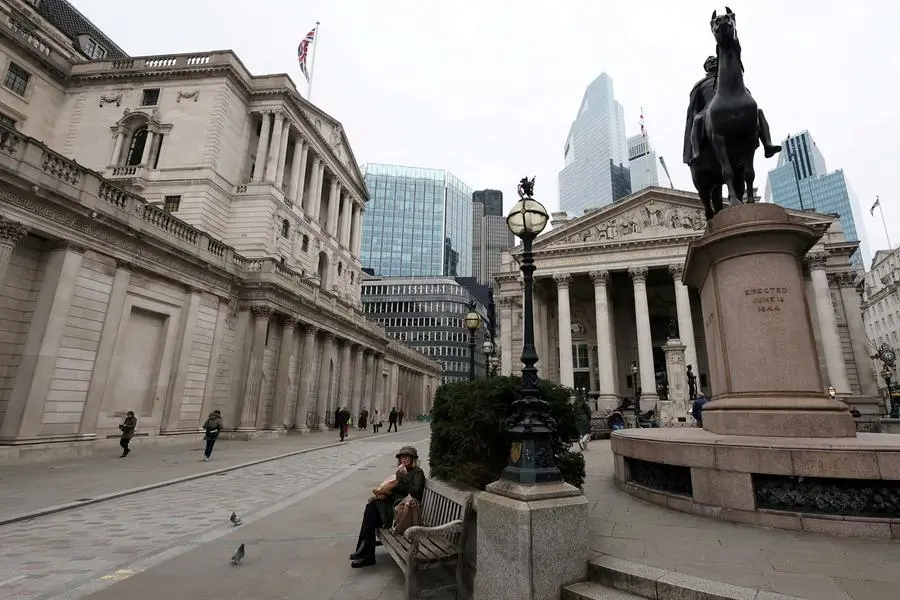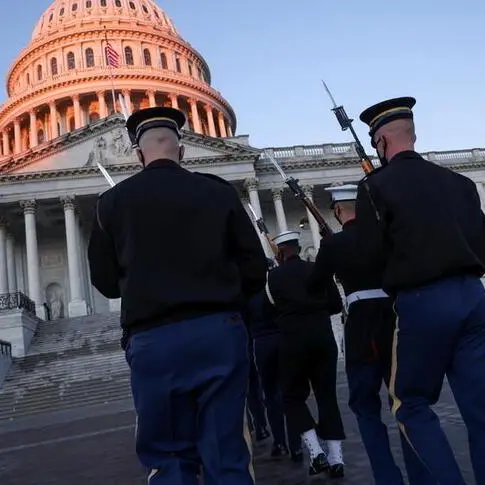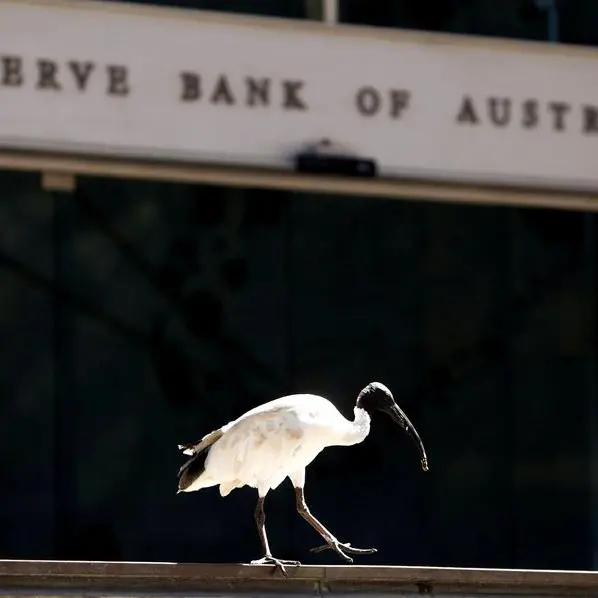PHOTO
LONDON - In a week when major central banks are expected to remain static, caught in a storm of disruptive U.S. policymaking, the Bank of England may be the one with most reason to cut to the chase.
Monetary policymakers face a potential double whammy from U.S. President Donald Trump's planned April tariff hikes, as they could hit global growth while also spurring prices. The Federal Reserve, Bank of Japan, Swiss National Bank and Bank of England are therefore all expected to sit on their hands this week and watch what unfolds.
The BoE also has to factor in domestic considerations, namely the political optics of shifting policy just a week before UK finance minister Rachel Reeves updates her budget plans and economic expectations.
And yet, there is no shortage of reasons why BoE policymakers may be tempted to ease, regardless of the policy fog overseas and the smoke and mirrors at home.
Britain's struggling economy began the year with another surprise contraction in January. And a bruising growth forecast downgrade from the BoE itself last month was compounded by another cut in the UK's 2025 outlook by the Organization for Economic Cooperation and Development on Monday.
While Reeves may be anxious about meeting her own fiscal targets given the likely sputtering of government revenues, an additional squeeze on government spending now seems self-defeating, not least because it would come on top of the employer tax rises that kick in next month.
So the case for using monetary policy to break the economic logjam is building, despite the hand-wringing about sticky wage and services inflation.
The fascinating bit of the BoE drama is that the calls for easing are increasingly coming from within the bank's own ranks.
MANN DOWN
In one of the most dramatic shifts within the BoE's rate-setting committee in recent years, policymaker Catherine Mann switched from resident hawk to uber dove at the BoE meeting in early February.
Mann voted for a half-point rate cut, which was double the eventual move. She switched sides within the nine-person council at a critical juncture, joining more recognized dove Swati Dhingra in calling for a 50-basis-point reduction to 4.25%.
Illustrating the significance of this change, BoE data on voting records show it was the first time Mann had ever voted for a rate reduction in the 28 meetings since she joined the policymaking council in late 2021.
For the record, she voted for 18 hikes in that period and voted for a higher rate than the eventual decision at 11 of the 28 meetings.
If you're going to turn, better to turn big.
GRADUALISM 'NO LONGER VALID'
Mann justified her shift by arguing that the BoE's 2% inflation target is reachable in the next year because UK companies will struggle to raise prices as consumers are hit by job losses and softening spending.
But her most telling reveal was when she said last month that a half-point move was needed to "cut through the noise" and make clear to the financial system that easier conditions were currently necessary in the UK.
And to her credit, there is certainly no shortage of noise right now, both at home and abroad.
In statements earlier this month, she doubled down: "With substantial volatility coming from financial markets, especially from cross-border spillovers, the founding premise for a gradualist approach to monetary policy is no longer valid."
Mann's concern that small quarter-point hikes are not going to make much of a difference in the current environment rings true. In fact, it's one of the reasons everyone assumes rates will be left unchanged, awaiting more clarity.
All 61 economists polled by Reuters this week expect the BoE to leave rates on hold at 4.5%, with the next cut not likely until May.
The Reuters poll also pointed to a 7-2 split on the committee in favour of keeping rates on hold, with Mann and Dhingra pushing for more.
Some banks, such as Morgan Stanley, see the split deepening to 6-3, with the newest member, Alan Taylor, likely to join the dissenters, having voted for a cut in three of his four meetings to date.
And Clare Lombardelli, another recent and dovish addition to the committee, could be in the mix too.
Meanwhile, markets are pricing in relatively hawkish policy, with barely two additional BoE cuts expected for the remainder of 2025, meaning year-end rates would be just under 4%. That's higher than the expectations for the Fed or the European Central Bank.
There's ample room for surprise.
The opinions expressed here are those of the author, a columnist for Reuters
(By Mike Dolan; Editing by Rod Nickel)
Reuters





















